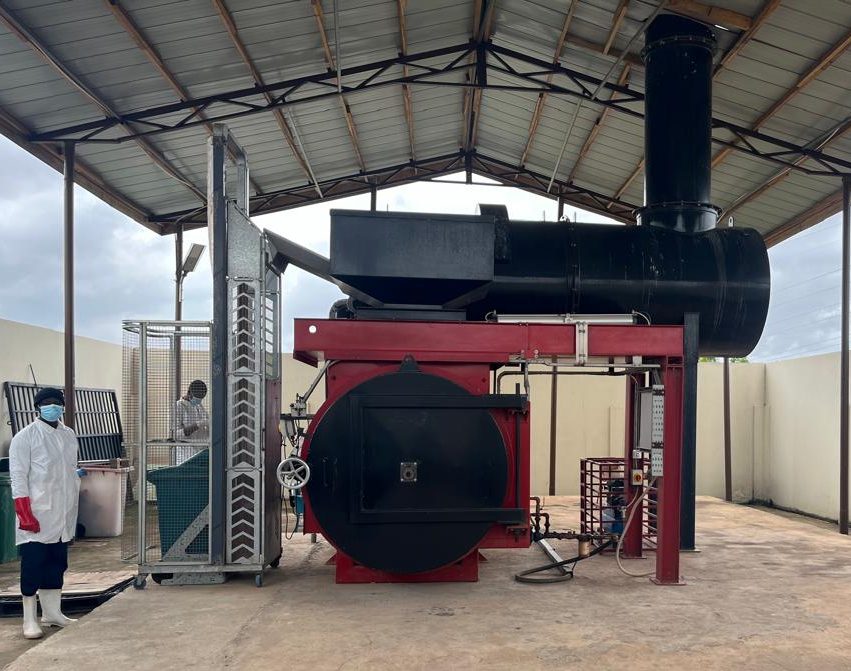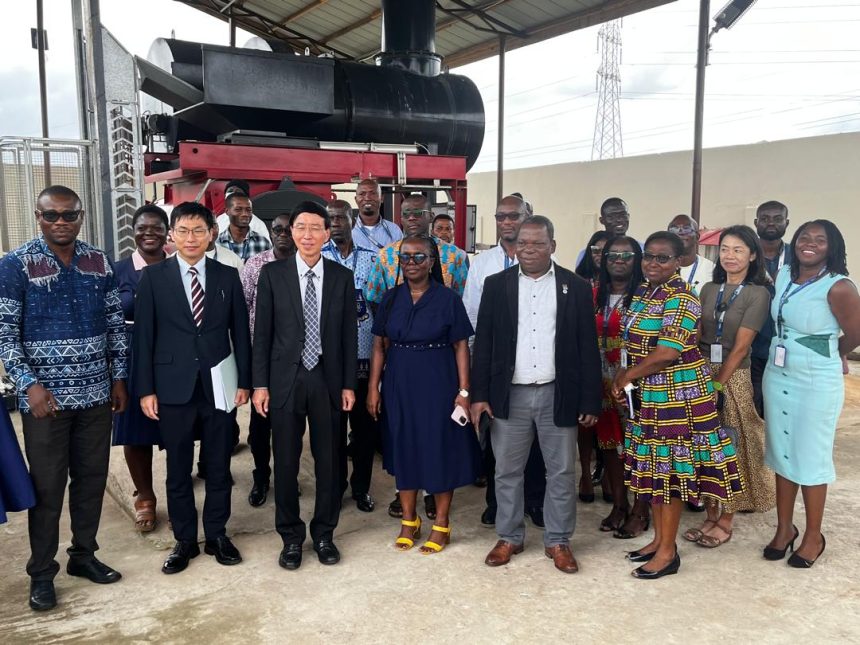The Noguchi Memorial Institute for Medical Research at the University of Ghana has commissioned an incinerator to improve biomedical waste management.
The Institute received funding from the government of Japan for an incinerator under Japan’s Grant Assistant Human Security Projects (GGHSP) scheme.
The incinerator comes equipped with advanced features, which include operating at high temperatures and ensuring the complete combustion of biomedical waste. Also, the emission control system minimizes environmental impact as its large capacity and efficient design allows it to handle a significant volume of waste.

The incinerator has the capacity to carbonize 250 kilograms of waste per hour and 3,200 kilograms per day.
In her welcome address during the commissioning, Director of Noguchi, Prof. Dorothy Yeboah-Manu emphasized the importance of the incinerator as it will ensure that biomedical waste is properly disposed of.
“It is very crucial considering what we do at the Institute. One can imagine the amount of biological waste that we generate daily so as a center of excellence, we could not generate the biological waste, which will put our staff and the Ghanaian population at risk. So with the aid of the Great Assistance for Grassroots Human Security Projects of the Embassy, we were awarded a grant of more than 130,000 U.S. dollars. We are happy to say that now Noguchi has the equipment to drastically reduce the waste that we generate here. We do not need to transport the waste to any place since we can dispose of and manage it onsite. Also, due to the very high temperature, whatever waste that we generate is reduced to a small amount of ash that we can bury onsite.”
She also expressed her appreciation to the government of Japan for funding the project.
“I would like to thank the Japanese Embassy for continued support of the Noguchi Memorial Institute for Medical Research and we look forward to deepening our friendship and doing so many things together.”
Also present at the commissioning, Japanese Ambassador to Ghana, His Excellency Mochizuki Hisanobu gave insights on the incinerator’s abilities in adequately addressing waste management at the institute.
“The importance of biomedical waste management cannot be stressed enough. As a medical research institution, one of the most important aspects of your work is the effective and safe disposal or management of biomedical waste being generated as a result of your work. The Embassy of Japan is therefore very pleased to have partnered with the Noguchi Memorial Institute for Medical Research to provide this modern incinerator for the safe management of its biomedical waste.
The incinerator has the capacity to efficiently treat 250 kilograms of waste per hour and 3,200 kilograms per day. Due to the enormous capacity of this incinerator, I believe the Institute’s waste management challenges will be well addressed.”
His Excellency Mochizuki Hisanobu further reaffirmed Japan’s commitment in providing support to the institute and called on management and staff of the institute to ensure the proper use of the incinerator with good maintenance.
“Since the inception of the Institute, there have been numerous collaborations from both JICA and the Japan Embassy in Ghana to ensure the facility provides optimum services to the people of Ghana and the sub-region. The provision of this incinerator is a reaffirmation of our commitment to continue with our partnership with the Institute to the best of our capacity. I also want to entreat management and the staff of the Institute to optimize and maintain this facility in order to sustain it beyond its lifespan. I strongly believe we will take good care of it to achieve the objectives of the project.”
The incinerator will provide numerous benefits for Noguchi, as it will significantly improve safety and hygiene. It will ensure proper disposal of hazardous waste, thereby allowing the Institute to meet international standards for waste management.




